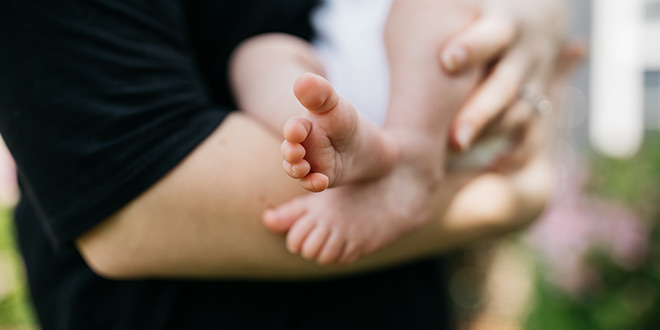New Delhi: With the aim to encourage breastfeeding and improve the health of babies around the world, World Breastfeeding Week is annually celebrated from August 1 to 7. It is celebrated by 170 countries to protect, promote, and support breastfeeding says WHO, because breastfed children are more intellectual and fit, it explains. Every year, this week is celebrated with a unique theme and this year’s theme is ‘Step Up for Breastfeeding: Educate and Support.’
As World Breastfeeding Week is being commemorated, it is vital to spread awareness about the importance of education and support for breastfeeding. It’s not a social stigma but a requirement that shapes a child’s physical and mental wellbeing.
Here are some noteworthy benefits of Breastfeeding for both mother and child:
1. Breastfeeding is one of the most effective ways to ensure child health and survival. Globally, only 40% of infants under six months of age are exclusively breastfed.
2. If breastfeeding were scaled up to near-universal levels, about 8,20,000 child lives would be saved every year, states the study, Breastfeeding in the 21st Century: Epidemiology, Mechanisms and Lifelong Effect.
3. Breastfeeding for the first six months is crucial, WHO recommends:
- mothers initiate breastfeeding within one hour of birth
- infants should be exclusively breastfed for the first six months of life to achieve optimal growth, development and health, and thereafter, to meet their evolving nutritional requirements, infants should receive nutritionally adequate and safe complementary foods, while continuing to be breastfed
- breastfeeding should continue for up to two years or beyond
4. India has reported a significant decline in children under three years of age who are breastfed within one hour of birth. According to the National Family Health Survey – 5, among 22 states and UTs, Sikkim has reported the sharpest decline of 33.5 per cent in initiating breastfeeding within an hour of birth.
5. On the other hand, Lakhshwadeep and Meghalaya have both shown over 18 per cent of the increase in breastfeeding within one hour of birth, reports the survey.
Also Read: Sugars From Human Milk Could Help Treat, Prevent Infections In Newborns: Study
6. Breastfeeding protects infants from childhood illnesses, gives them all the nutrients and contains antibodies that help protect them from common childhood illnesses such as diarrhoea and pneumonia, according to WHO.
7. WHO also says that breastfeeding benefits mothers as well, as exclusive breastfeeding is associated with a natural method of birth control with 98% protection in the first six months after birth.
8. It reduces the risks of breast and ovarian cancer, type II diabetes, and postpartum depression for mothers, says WHO.
9. Breastfeeding has long-term benefits for children, adolescents and adults who were breastfed as babies are less likely to be overweight or obese, according to WHO.
10. Breastfed children are less likely to have type-II diabetes and perform better in intelligence tests, WHO states.
NDTV – Dettol have been working towards a clean and healthy India since 2014 via the Banega Swachh India initiative, which is helmed by Campaign Ambassador Amitabh Bachchan. The campaign aims to highlight the inter-dependency of humans and the environment, and of humans on one another with the focus on One Health, One Planet, One Future – Leaving No One Behind. It stresses on the need to take care of, and consider, everyone’s health in India – especially vulnerable communities – the LGBTQ population, indigenous people, India’s different tribes, ethnic and linguistic minorities, people with disabilities, migrants, geographically remote populations, gender and sexual minorities. In wake of the current COVID-19 pandemic, the need for WASH (Water, Sanitation and Hygiene) is reaffirmed as handwashing is one of the ways to prevent Coronavirus infection and other diseases. The campaign will continue to raise awareness on the same along with focussing on the importance of nutrition and healthcare for women and children, fight malnutrition, mental wellbeing, self care, science and health, adolescent health & gender awareness. Along with the health of people, the campaign has realised the need to also take care of the health of the eco-system. Our environment is fragile due to human activity, which is not only over-exploiting available resources, but also generating immense pollution as a result of using and extracting those resources. The imbalance has also led to immense biodiversity loss that has caused one of the biggest threats to human survival – climate change. It has now been described as a “code red for humanity.” The campaign will continue to cover issues like air pollution, waste management, plastic ban, manual scavenging and sanitation workers and menstrual hygiene. Banega Swasth India will also be taking forward the dream of Swasth Bharat, the campaign feels that only a Swachh or clean India where toilets are used and open defecation free (ODF) status achieved as part of the Swachh Bharat Abhiyan launched by Prime Minister Narendra Modi in 2014, can eradicate diseases like diahorrea and the country can become a Swasth or healthy India.
[corona_data_new]

























